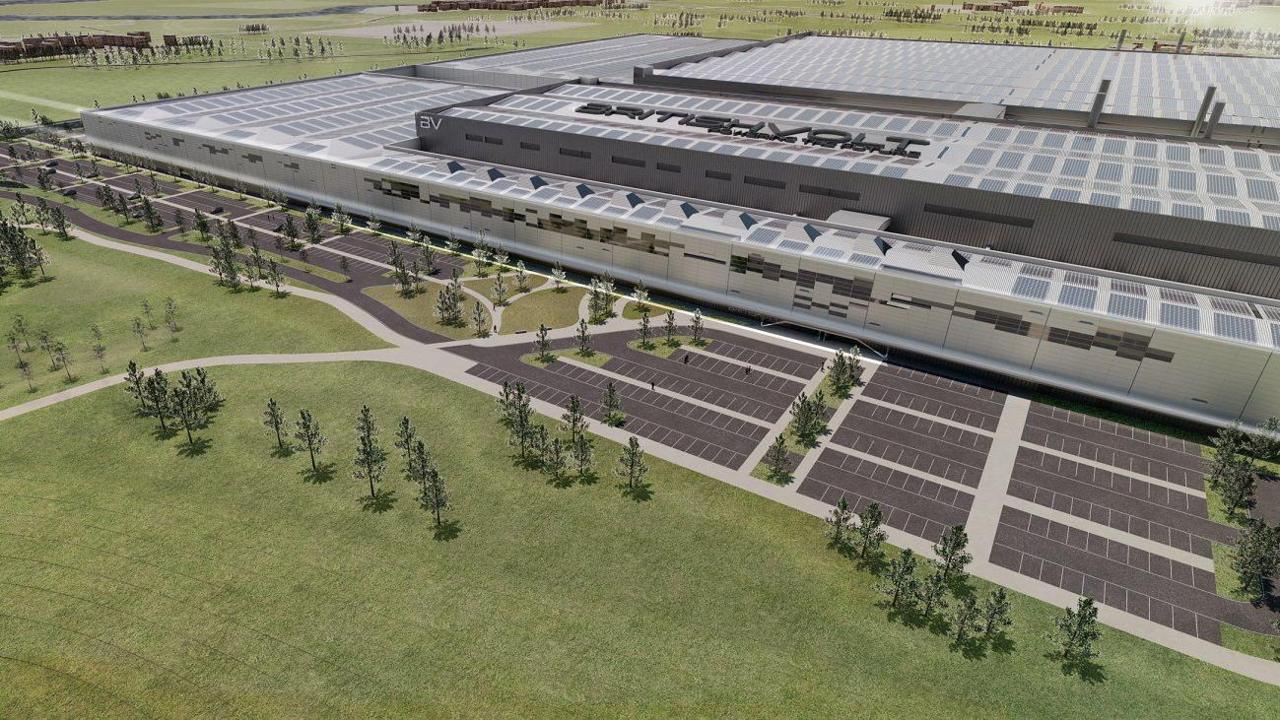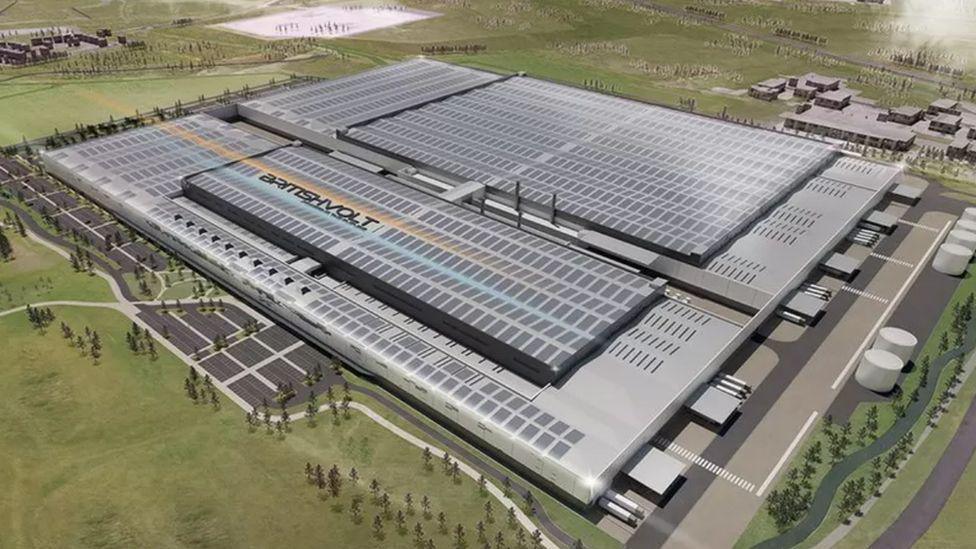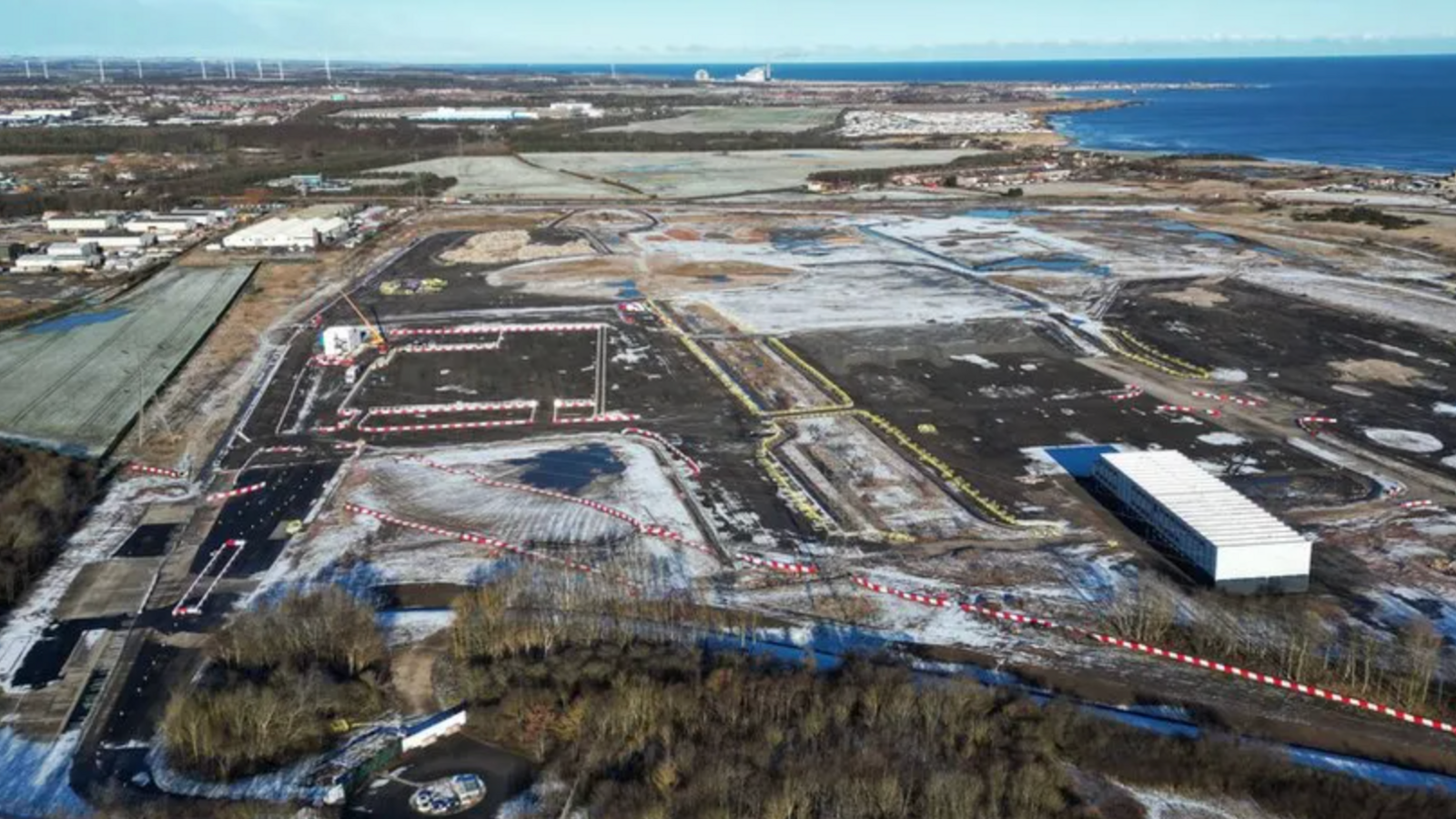Hopes remain for gigafactory investment

The proposed factory in Northumberland was at one point estimated to help create 8,000 jobs
- Published
A councillor says he remains hopeful a transformative gigafactory can be attracted to Northumberland despite the failed Britishvolt saga.
Plans for a factory producing electric car batteries at Cambois, near Blyth, were finally dashed in April when the site was sold to US investment firm Blackstone.
The company plans to develop an AI datacentre campus, with the investment hailed as one of the largest in the North East.
It followed a string of funding difficulties that saw start-up Britishvolt enter administration in January 2023, and a bid to restart work on the site by Australian firm Recharge Industries did not come to fruition.
The Blackstone development is estimated to create 1,600 direct jobs, including 1,200 long-term construction roles, and a further 2,700 indirect jobs, according to the Local Democracy Reporting Service.
However, the Britishvolt plans had been slated to create up to 8,000.
'Potential' for benefits
Speaking at a meeting of Northumberland County Council’s cabinet, deputy leader councillor Richard Wearmouth revealed hopes for a similar project were not entirely dead.
It follows the new Labour government's pledge to reinstate the 2030 ban on the sale of new petrol and diesel cars.
Wearmouth said: "There is the potential for some benefits from some of the new government's policies.
"We hold out the hope for attracting another gigaplant operator to our area.
"The government have reinstated that target. We will watch that space with interest."
The previous Conservative administration had announced plans to end the sale of new internal combustion-engined cars, but the deadline was pushed back last year by Prime Minister Rishi Sunak.
Labour now plans to reintroduce the measure, although hybrid models – vehicles with both petrol and electric power - would still be allowed for sale until 2035.
Follow BBC North East on X, external, Facebook, external, Nextdoor and Instagram, external. Send your story ideas to northeastandcumbria@bbc.co.uk.
Related topics
- Published15 April 2024

- Published26 March 2024

- Published17 January 2023
